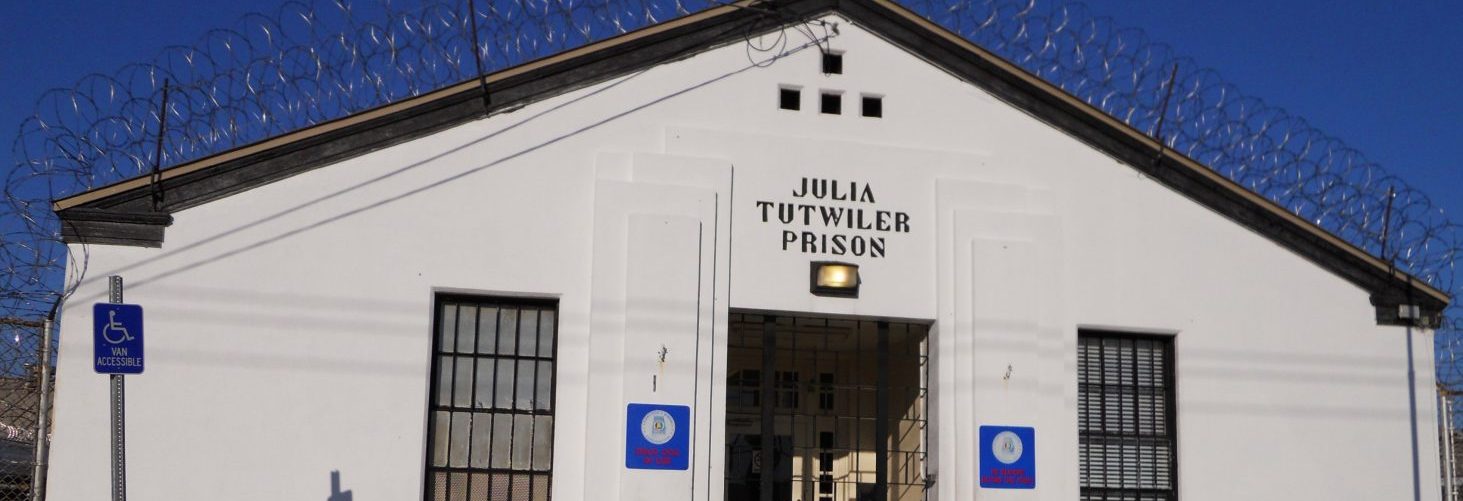By Chip Brownlee
Alabama Political Reporter
The Alabama Department of Corrections is opening bidding for a team to oversee a comprehensive plan to improve the state’s corrections infrastructure — just months after the department’s own plan to build four new mega-prisons, dubbed the Alabama Prison Transformation Initiative, died in the final days of the legislative session.
The request for qualifications seeks a “project management team” to oversee the development of a comprehensive plan to renovate existing ADOC prison and potentially build new facilities in the future. The request also calls for the team to plan renovations to existing mental health facilities or plan construction of new facilities that will be required as part of a settlement in the mental health lawsuit facing the state’s prison system.
“The Project Management Team will be acting on behalf of the Governor and the ADOC to develop a long-term solution to the problems associated with aging prison facilities and infrastructure statewide,” the request reads.
ADOC’s plan to build four new mega-prisons, the APTI, was shot down two years in a row over the past two legislative sessions. Last year, a toned-down version of the plan passed in the Senate but died in the House in the final days of the legislative session.
The death of the prison bill was largely the result of splits between moderate and conservative GOP lawmakers who disagreed over the size of and methods within the plan, which would have authorized three new 4,000-bed regional men’s facilities and a 1,200-bed women’s facility at a cost of about $875 million.
Most of the state’s existing facilities would have been shut down once the new prisons were built.
The bill would have authorized a non-tradition design-build bidding process and a $1 billion bond issue, both of which drew the ire of conservatives who had worries about the cost and the bidding process.
The plan — conceived by ADOC Commissioner Jeff Dunn, pushed by then-Gov. Robert Bentley and sponsored by Sen. Cam Ward in the Senate — was an effort to reduce severe overcrowding in Alabama’s prisons, which has been verging on 200 percent capacity in the past few years.
ADOC officials and the plan’s supporters have said new facilities are needed to expand capacity and improve conditions as overcrowding has proven persistent despite some sentencing reform. Those issues — combined with worsening dilapidation of prisons that were built largely in the 1960s and 1970s, though some opened as long ago as 1939 — have resulted in numerous lawsuits and calls for improvement to the state’s prison infrastructure.
Overcrowding currently stands at 164.8 percent with nearly 22,000 inmates being held in a system designed for 13,318 inmates, according to data for August 2017. A November 2016 assessment showed that six of the 16 major facilities should be slated for closure. Needed maintenance is estimated at $440 million.
“A key component of APTI was that new prison designs, coupled with consolidation, would allow the department to operate at significantly reduced operational costs, putting the department in a position to absorb the cost of new construction,” ADOC wrote in their RFQ.
APTI would have added several thousand beds to the state’s prison system and, combined with the sentencing reform passed in recent years, would have reduced overcrowding to 125 percent, according to the department’s estimates.
The team selected as part of this bidding process will develop plans and advise ADOC and the Department of Finance on programming and construction including the development of a master plan for new building projects. The team will also assist ADOC in selecting sites for the new prisons and will advise on the design of the projects.
The federal courts have shown increasing impatience with Alabama’s prison system. In recent years, conditions at Tutwiler Prison were so bad that a federal court ruled them unconstitutional and ordered improvements. The U.S. Department of Justice launched a larger investigation in 2015.
ADOC is also facing a federal court order mandating improvements to mental health care in the state’s prisons, which could cost anywhere between $20 and $40 million, according to recent estimates. Federal Judge Myron Thompson called mental health care in Alabama’s prison “horrendously inadequate.”
The plaintiffs in the case, inmates represented by the Southern Poverty Law Center and the Alabama Disability Advocacy Program, argued that the state of mental health care in state prisons was so inadequate that it was unconstitutional based on the Constitution’s prohibitions against cruel and unusual punishment.
The new request comes after a separate request for proposals opened up bidding earlier this year for a provider to manage and deliver a comprehensive healthcare program for all of Alabama’s 28 corrections facilities. The provider, when selected, according to the RFP, will provide primary, secondary and tertiary medical and mental health care. Those proposals were due in August.
According to the timeline for that RFP, ADOC was set to select a vendor last month. No announcement has been made yet.
Another lawsuit, challenging medical and dental health care in the state prison system, has yet to go to trial. That portion of the lawsuit, also filed by the SPLC and its clients, could cost even more.




















































